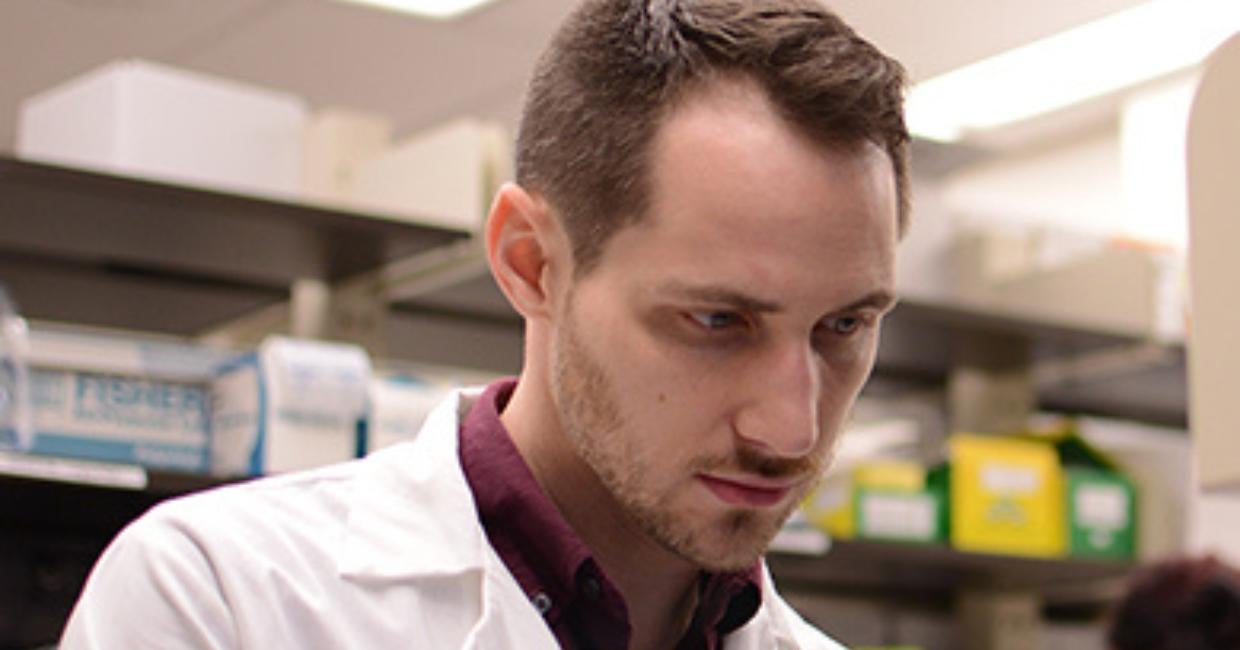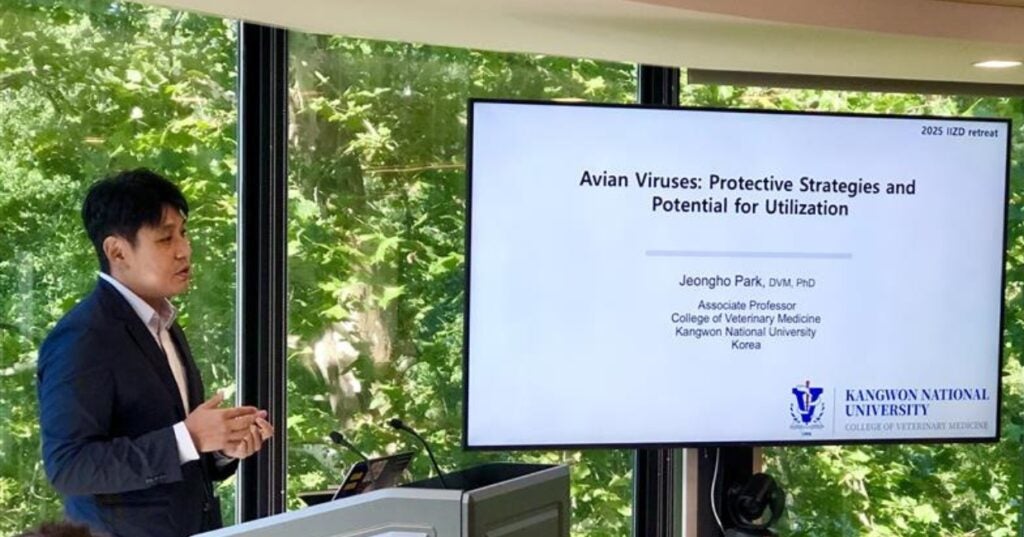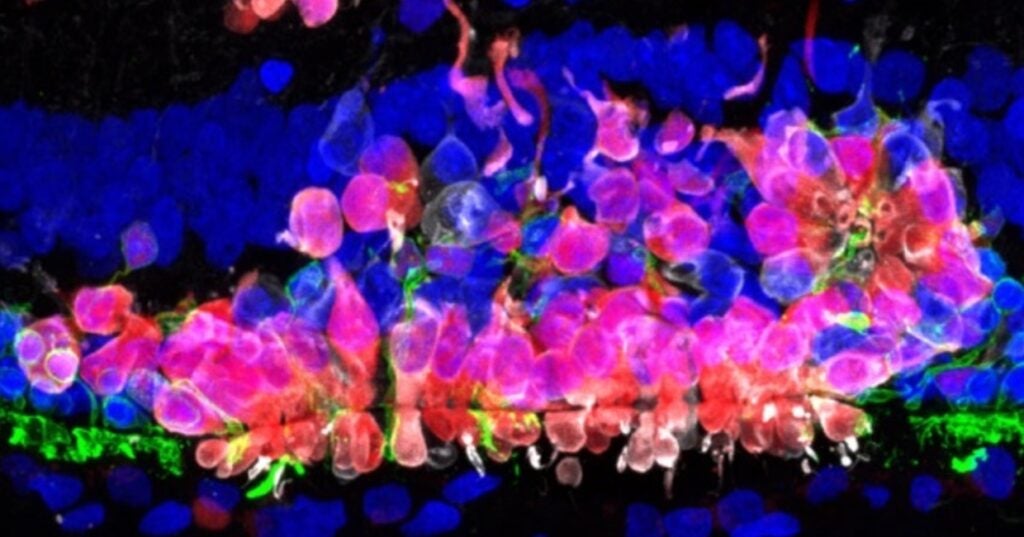Penn Vet Scientist Receives Grant to Study Unconventional T Cell Response to Advance Potential HIV/AIDS Vaccine Development

Michael J. Hogan, PhD, assistant professor of Pathobiology at the University of Pennsylvania School of Veterinary Medicine (Penn Vet), has been awarded a one-year grant from the W.W. Smith Charitable Trust. The grant will fund Hogan’s investigation aimed at gaining a clearer understanding of a particular type of immune response that could pave the way for developing a safe and effective HIV/AIDS vaccine using pioneering mRNA technology.
A viral immunologist and vaccinologist, Hogan’s research focuses on understanding how immune systems defend against viruses. He studies animal and human immune cell response to harmful pathogens with the goal of generating various mRNA vaccine designs to protect against infection. Hogan’s work has appeared in Nature, Nature Immunology, Annual Reviews of Medicine, and Immunity.
Hogan joined Penn Vet in January 2024. He serves on the faculty of Penn’s interdisciplinary graduate program, the Cell and Molecular Biology Graduate Group, where he supports the Gene Therapy and Vaccines and the Microbiology, Virology, and Parasitology areas of study. Hogan is also a member of the Perelman School of Medicine’s Penn Center for AIDS Research. He earned his PhD in Cell and Molecular Biology from the University of Pennsylvania (Penn). Hogan trained in the Penn laboratories of Drew Weissman, MD, PhD, and James Hoxie, MD; and completed his postdoctoral work in the laboratory of Laurence “Ike” Eisenlohr, VMD, PhD, at the Children’s Hospital of Philadelphia.
The W.W. Smith Charitable Trust funds unique and meritorious medical research in the Philadelphia metropolitan region related to heart disease, cancer, and AIDS. Research proposals are peer reviewed by a medical advisory committee and funding is awarded to proposals capable of having a direct influence on the fight against these degenerative diseases. Since its inception in 1977, the W.W. Smith Charitable Trust has awarded over $82 million in medical research grants.
Learn more about about Penn’s AIDS research in Penn Today.
Related News

A New Penn Vet Study is Finding Where the Wild Things Are: Right Here in Philly!
A new project, the Accessing Urban Nature Initiative (AUNI), has started capturing images of seldom seen but decidedly special city dwellers like these – and many others – with the…

Penn Vet’s Institute for Infectious and Zoonotic Diseases Hosts Second Annual Research Retreat
The University of Pennsylvania (Penn) School of Veterinary Medicine’s (Penn Vet) Institute for Infectious and Zoonotic Diseases (IIZD) hosted its annual Faculty Research Retreat on September 3 at the Brandywine…

Hope for cell-based retinal repair: Penn Vet study finds key to improving survival of transplanted cells
Researchers identify metabolic stress as an obstacle to photoreceptor transplantation highlighting a critical window for therapeutic intervention.
About Penn Vet
Ranked among the top ten veterinary schools worldwide, the University of Pennsylvania School of Veterinary Medicine (Penn Vet) is a global leader in veterinary education, research, and clinical care. Founded in 1884, Penn Vet is the first veterinary school developed in association with a medical school. The school is a proud member of the One Health initiative, linking human, animal, and environmental health.
Penn Vet serves a diverse population of animals at its two campuses, which include extensive diagnostic and research laboratories. Ryan Hospital in Philadelphia provides care for dogs, cats, and other domestic/companion animals, handling more than 34,600 patient visits a year. New Bolton Center, Penn Vet’s large-animal hospital on nearly 700 acres in rural Kennett Square, PA, cares for horses and livestock/farm animals. The hospital handles more than 6,200 patient visits a year, while our Field Services have gone out on more than 5,500 farm service calls, treating some 18,700 patients at local farms. In addition, New Bolton Center’s campus includes a swine center, working dairy, and poultry unit that provide valuable research for the agriculture industry.

